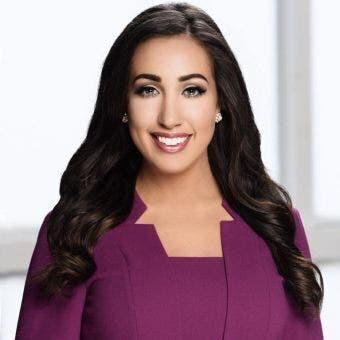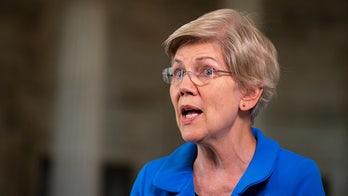Peter Navarro: We are facing economic ‘chasm’ unless we act now
White House trade adviser Peter Navarro provides insight into the jobless claims increase as coronavirus cases surge.
The United States is facing an economic “chasm” unless “Capitol Hill gets its act together” and passes another coronavirus relief bill, White House trade adviser Peter Navarro warned Wednesday.
Navarro told “Outnumbered Overtime” that while the economy seems to be improving, it is doing so at a “slower rate,” which he said “means that we are facing a chasm that we are likely to go into unless we act now.”
“We are facing a chasm here because of the fiscal stimulus relief packages going down and we are entering … a second wave of this lockdown," Navarro added, "and those twin forces are going to really hit us in a way that, unless Capitol Hill gets its act together and steps into that breach … we’re going to have an issue."
Navarro went on to stress that Congress needs “to act now” and “can’t wait until millions more Americans fall into that chasm and won’t be able to get out.
“You lose small businesses, you lose them forever,” he added.
House Speaker Nancy Pelosi, D-Calif., and Senate Minority Leader Chuck Schumer, D-N.Y., have attempted to convince Republicans to meet in the middle between House Democrats' more than $3 trillion proposal and Senate Republicans' $1 trillion offer, but the idea has been a nonstarter with Republicans, who have indicated they have little interest in passing another multitrillion-dollar spending bill after passing the $2.2 trillion CARES Act earlier this year.
While the economic outlook has brightened a bit in recent months, Federal Reserve Chairman Jerome Powell has repeatedly indicated that the economy could use more fiscal support.
On Wednesday there were new signs of an economic slowdown, as the the latest jobless claims figures from the Labor Department show the number of Americans applying for unemployment benefits rose again last week.
The figures show that 778,000 workers sought aid last week, about four times the pre-crisis level. While it's well below the peak of nearly 7 million in late March, when states first implemented lockdown measures to curb the spread of COVID-19, it marks the second consecutive week of an increase in claims.
The number of people who are continuing to receive unemployment benefits fell to a little more than six million, a decline of 299,000 from the previous week.
FED'S POWELL SAYS US ECONOMY MAY NEED MORE POLICY HELP TO AVOID 'PROLONGED' RECESSION
Close to 68 million Americans ‒ roughly 40% of the nation's labor force ‒ have applied for aid since the coronavirus lockdowns began in mid-March.
At the same time, a second estimate released Wednesday by the Commerce Department showed the U.S. economy grew at a record pace during the third quarter.
Gross domestic product (GDP) increased 33.1% during July, August and September, unrevised from the first estimate and in line with the expectations of analysts surveyed by Refinitiv.
Navarro pointed to the GDP increase as well as other positive economic data on Wednesday, including the fact that existing and new homes sales are “really strong” and that “durable goods, our core capital goods, [are] off the charts,” which he noted “means manufacturing is strong.”
However, in addition to the rising jobless claims figures, Navarro pointed out that “personal income is going down” as well. He stressed that “all the infusions of cash into the economy” from the previous relief bills “have been going down” and, therefore, to stimulate the economy, Congress needs to act immediately.
“We got to get a phase four bill passed on the Hill forthwith,” Navarro said.
“I understand that the folks on Capitol Hill can’t get along, and they like to argue, but there’s three things they need to agree on," he added.
CLICK HERE TO GET THE FOX NEWS APP
Navarro suggested that more money needs to be added to the “extremely successful” Paycheck Protection Program, designed to keep small businesses afloat during the pandemic. He added that Another stimulus check similar to the $1200 sent to most Americans in April is needed, as well as “a reboot on our unemployment compensation.”
He said if those three measures are implemented, it will serve as a “fiscal bridge” until Americans are able to get access to a coronavirus vaccine, which would ultimately help the economy.
Fox Business’ Megan Henney and Jonathan Garber contributed to this report.








